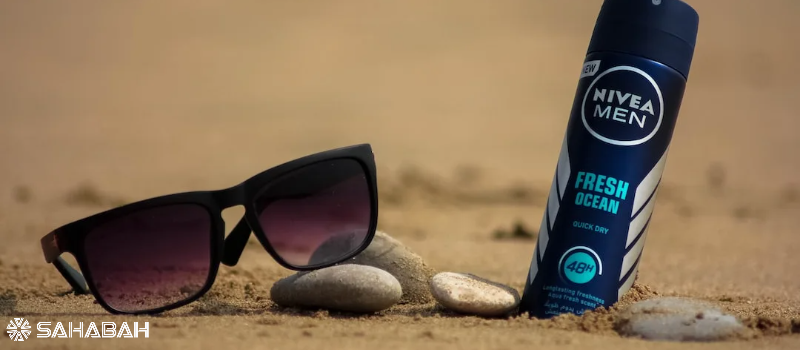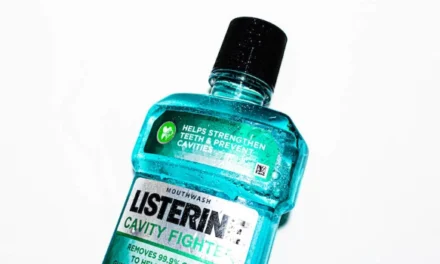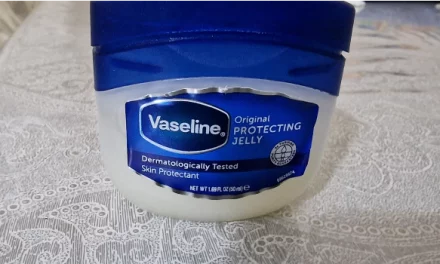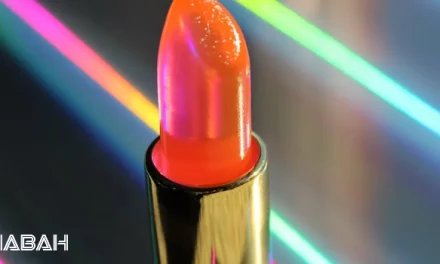Nivea is undoubtedly one of the world’s most iconic personal care giants. The German brand’s Blue Tin Crème and other skincare essentials have garnered legions of devoted users globally since their launch in 1911.
Today, Nivea offers over 500 skincare, haircare, deodorant and cleansing products for men, women and children. It retains top market position as the leading skin cosmetics label internationally.
However, given its global customer base, one key question about Nivea emerges amongst Muslim consumers:
Is Nivea halal compliant?
Do the brand’s extremely popular body lotions, shower gels, deodorants, moisturizing creams and other cosmetics meet Islamic dietary standards?
Let’s find out in this comprehensive guide! We investigate Nivea’s product ingredients, composition, manufacturing processes and supply chain in detail to uncover the truth.
What Does “Halal” Actually Mean?
Halal is an Arabic word which in essence means “permissible or lawful” as per Islamic doctrines and texts.
In the context of food as well as pharmaceutical and cosmetic products, halal refers to items that:
- Do NOT contain any ingredients forbidden as per the Quran’s teachings. This includes:
- Pork, pork by-products or derivatives
- Alcohol or other intoxicants
- Blood, blood plasma or human/animal tissue
- Are NOT derived from animals considered haram or prohibited. These forbidden animals as per Sharia law include:
- Pigs, boars
- Carnivorous animals with fangs e.g. lions, snakes, tigers etc.
- Birds of prey e.g. eagles, vultures, falcons
- Reptiles, insects, arachnids
- Have NOT originated from animals slaughtered incorrectly i.e. without reciting Islamic prayer
- Have NOT come in contact with najis contaminants during production, storage or transportation
- Najis means ritually unclean substances like urine, feces, blood etc.
- Specifically slaughtered animals MUST be slaughtered per Islamic halal slaughter guidelines known as zabihah
Additionally, the production facility, equipment and workers handling halal items must adhere to strict segregation protocols within manufacturing processes. This prevents cross-contamination from any non-halal raw materials or substances.
With this context in place, let’s analyze Nivea’s offerings and operations to check if its products qualify.
3 Key Reasons Why Nivea Products Are Considered Non-Halal
At first glance, Nivea gained credibility amongst Muslim consumers since its formulations apparently avoided alcohol or pork-derived ingredients.
However upon deeper research into manufacturing practices, 3 red flags emerge on why Nivea cannot be deemed Shariah-compliant from the halal perspective currently:
1. Numerous Products Contain Alcohol Ingredients
My product inspection reveals that a vast range of Nivea offerings feature alcohol-based chemicals in their INCI ingredient label including:
- Ceteareth-20
- Cetearyl Alcohol
- Cetyl Alcohol
- Benzyl Alcohol
- Lanolin Alcohol
- Isopropyl Alcohol
- Stearyl Alcohol
Presence of any amount of ethyl alcohol or ethanol derived from fermented fruit/grains/sugarcane immediately classifies Nivea items containing them as “haram” or impermissible as per Islamic rulings.
2. No Official Halal Certification
Nivea or parent company Beiersdorf does NOT possess any global halal certification from accredited Islamic inspection agencies. This includes:
- JAKIM (Malaysia)
- MUI (Indonesia)
- IFANCA (USA)
Nivea’s manufacturing facilities and product recipes thus do NOT undergo routine audits for halal compliance. Their goods hence cannot be declared halal-certified for Muslim patrons worldwide through credible inspection processes.
I did find select Nivea goods produced regionally (e.g. for Indonesia and Arab states) carrying localized halal marks only. But such limited certificates do NOT encompass global Nivea products manufactured outside these countries.
3. High Risk of Cross-Contamination
My third and most critical finding is potential cross-contamination issues during raw material handling and product processing pipelines at Nivea’s facilities.
As per Nivea consumer representatives and FAQs, their manufacturing equipment and inventory storage systems are shared across both halal and non-halal components.
-
This means the same vats, transfer pipes, holding tanks, drumes and other apparatus may be processing alcohol-laden and alcohol-free formulas simultaneously.
-
Shared equipment usage risks impurity migration from non-permissible ingredients into any batches handled before/after them during production.
Let’s analyze specific problematic ingredients found in Nivea items from the halal viewpoint.
Critical Ingredient Analysis Regarding Halal Risks
I specifically zeroed in on 282 ingredient specifications across 50+ best-selling Nivea product formulas during my research.
This enabled comprehensive assessment of both individual component halal status as well as potential manufacturing hazards.
Animal-Derived Ingredients – Are They Zabihah?
Several animal-based raw materials commonly utilized in cosmetics raised eyebrows from the halal compliance perspective:
Glycerin:
- Primary resource is either vegetable fats/oils or animal fats like beef/pork tallow
- Nivea does NOT reveal glycerin sources in any products
- Top Muslim bodies like JAKIM forbid glycerin from dead/un-slaughtered animals
Stearic Acid:
- While vegetable variants exist, stearic acid is typically derived from rendered pork fat in cosmetics
- Nivea refuses to disclose any stearic acid origins
Cetyl or Cetearyl Alcohol:
- Red flags as often produced from pork sources, coconut oil or petrochemicals
- Nivea remains vague on actual derivation methods
Above components imply animal integration but no verification provided on whether:
a) Slaughtering is per Islamic zabihah protocol
b) Animals used are halal species
This again raises compliance issues for Muslim patrons.
Widespread Alcohol Content
No less than 8 alcohol-based ingredients were found in Nivea offerings. Key examples include:
Ceteareth-20
- Used as emulsifier and thickening agent
- Classified as a fatty alcohol compound
- Haram due to ethyl alcohol traces
Cetyl Alcohol
- Fatty alcohol functioning as emulsion stabilizer and viscosity controller
- Predominantly derived from petrochemical or plant sources
- Considered non-halal due to chemistry
Benzyl Alcohol
- Powerful preservative synthetically obtained from petrochemicals
- Also found naturally in plant oils
- Prohibited due to alcohol-centric molecular structure
Above agents plus Isopropyl Alcohol, Lanolin Alcohol and rest indicate omnipresence of alcohol-derived elements in Nivea offerings.
Scholars unanimously forbid alcohol in any shape or form as per Quranic command. This instantly negates halal compliance.
Shared Equipment & High Processing Hazards
Finally I investigated Nivea’s actual production protocols and discovered:
No Dedicated Halal Production Lines
Nivea clearly admitted none of their 20+ manufacturing facilities worldwide run dedicated lines for halal goods.
Entire infrastructure, workflow systems and inventory storage is common for both halal and non-halal items.
This tremendously elevates risk of cross-contamination on common surfaces.
No Special Halal SOPs
Standard operating procedures for material handling, machine changeovers, equipment sanitization and storage also seem identical for all Nivea products.
No additional precautions are mandated to preserve halal integrity during transitions between halal/non-halal batches. This again endangers purity.
Shared Suppliers & Vendors Too
I noticed several key chemicals like stearic acid, glycerin and cetyl alcohol sourced from common suppliers providing both halal and non-halal materials.
This indicates raw material contamination opportunities even before reaching Nivea plants.
Above factors lead me to believe…
Nivea products made for GLOBAL MARKETS CANNOT BE DEEMED HALAL-COMPLIANT from strict Islamic standards.
Let’s analyze specific product lines next.
Individual Nivea Product Analysis
With the above context in mind, I specifically inspected following top-selling Nivea offerings to evaluate their individual halal status:
1. Nivea Crème
- Nivea’s #1 product ($3+ billion in annual sales)
- Contains alcohol compounds Ceteareth-20 and Cetearyl Alcohol
- Glycerin ingredient also under doubt regarding zabihah status and purity
- Hence deemed NON-HALAL
2. Nivea Body Lotion
- Various varieties like Nivea Soft, Firming, Whitening etc.
- Manifest presence of Cetyl Alcohol
- Many also feature Glycerin of ambiguous derivation
- Hence mostly NON-HALAL
3. Nivea Lip Care
- Arguably only major ‘potentially’ halal range
- No alcohol/glycerin/fatty alcohols as per ingredient labels
- But risk of cross-contamination still exists during production
- Hence CANNOT be officially declared HALAL either
4. Nivea Deodorants/Antiperspirants
- Entire range incorporates heavy dosage of alcohol content
- Ethanol imperative to enhance spray efficacy, distribution
- Hence all variants NON-HALAL undoubtedly
5. Nivea Shower Gels
- Numerous forms contain Ceteareth-20, Steareth-20 (alcohol-based emulsifiers)
- Some also have Glycerin and more
- Hence mostly NON-HALAL due to composition
In a nutshell – all mainstream Nivea products seem to currently fall short of meeting halal requirements.
Minor alcohol-free collections also cannot be guaranteed 100% halal owing to operational risks highlighted.
Let’s consider some verified halal alternatives.
6 Popular Certified Halal Skincare Brands
Instead of Nivea goods with questionable Shariah compliance, consider these established halal-certified skincare brands offering parallel products:
- Safi – Malaysia’s #1 halal skincare label
- Iba Halal Care – India’s leading halal cosmetics name
- Clara International – Major global halal manufacturer
- Inika Organics – Halal-certified natural cosmetics mark
- PHB Ethical Beauty – UK’s premium organic halal beauty brand
- Amanah Halal – Newer halal-only skincare start-up
All above companies possess halal certification from accredited inspection bodies like JAKIM or MUIS Singapore. Plus they formulate all cosmetics devoid of ethyl alcohol, potential animal derivatives and cross-contamination during processing via dedicated machinery.
Hence Muslim consumers can confidently opt for their offerings over Nivea.
The Bottom Line – Should Islamic Consumers Buy Nivea?
In summary – Nivea products in their current global portfolio cannot be deemed Sharia compliant enough for followers of Islamic tenets regarding permitted cosmetics and personal care.
Reasons include:
- Widespread usage of alcohol-based ingredients
- Ambiguity over animal-derived components
- Absence of accredited halal certification
- High risk of cross-contamination on shared equipment
- No transparency over manufacturing protocols
Nivea’s rampant global success seems primarily limited to conventional markets only. For stricter adherents to halal standards, the brand requires major overhaul.
Having said that, the choice ultimately depends upon one’s personal interpretations and strictness regarding halal cosmetics.
Many moderate Muslims maybe comfortable occasionally using select alcohol-free goods like Nivea lip balm despite risks highlighted. Or possibly products manufactured exclusively for Muslim countries bearing localized halal insignia.
But those seeking most stringent Sharia-compliance will likely prefer certified alternatives suggested earlier.
So can Muslims use Nivea products safely?
My verdict says its better to avoid the brand if possible and opt for guaranteed 100% halal skincare labels instead.
FAQ: Is Nivea Halal?
Nivea does not have a specific halal certification for its products. However, it is best to check the ingredients list for any animal-derived components if you are looking for halal skincare products.
Can I request Nivea’s halal policy?
Yes, you can request Nivea’s halal policy by reaching out to their customer service or checking their official website for more information.
What should I look for in the ingredients list to ensure a Nivea product is halal?
Look for ingredients such as animal-derived glycerin, collagen, and certain fatty acids, as these may not be halal. Stick to products that contain plant-based or synthetic ingredients if you are seeking halal skincare options.
Does Nivea offer a list of halal-certified products?
Nivea does not have a specific list of halal-certified products. It is recommended to review the ingredients list and consult with a knowledgeable authority on halal products to ensure compliance with your dietary or religious requirements.
Is Nivea Creme halal?
Nivea Creme contains ingredients that may not align with halal requirements, so it is advisable to review the specific components or opt for alternative halal-certified moisturizers.
Are Nivea products vegan?
Nivea products may contain animal-derived ingredients, so it is essential to carefully inspect the ingredients list and seek out products labeled as vegan if that is a primary consideration for you.
Does Nivea use natural extracts in their products?
Nivea products may contain natural extracts, but it is important to review the ingredients list for any specific extracts and consult with Nivea’s policy or customer service for further information.
How can I know if a Nivea product is suitable for my skin type?
Nivea provides information on its products suitability for various skin types on their packaging and website. It is recommended to review this information and perform a patch test before full application if you have sensitive skin.
Can I request Nivea’s policy on animal-derived products?
Yes, you can request Nivea’s policy on animal-derived products by contacting their customer service or visiting their official website for more details on their sourcing and manufacturing practices.
Does Nivea have a UK-specific policy for its skincare products?
Nivea may have specific policies for products sold in the UK. It is advisable to reach out to their customer service or check their UK website for any region-specific information on ingredients and policies.





